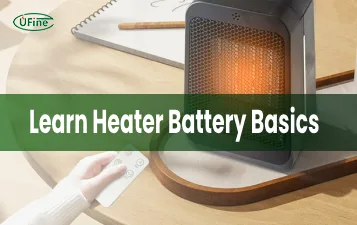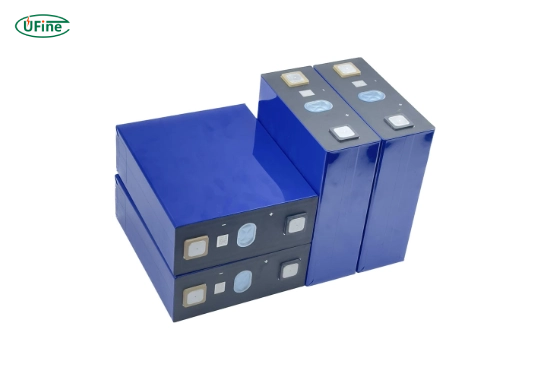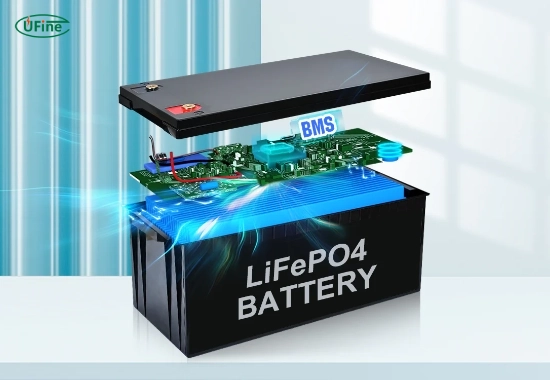Cheap LiFePO₄ batteries are increasingly popular among small resellers and integrators looking for affordable energy storage solutions. These batteries are widely used in renewable energy systems, RVs, marine power, and off-grid applications. However, not all cheap options are created equal. Many buyers suffer from poor quality, safety issues, and a lack of support after import. This guide provides a practical roadmap to help you avoid common procurement mistakes and build a sustainable battery business.
Part 1. What are cheap LiFePO₄ batteries?
Cheap LiFePO4 batteries are low-cost lithium iron phosphate batteries manufactured in price-sensitive regions like China and Vietnam. They are marketed as budget-friendly alternatives to premium brands. Due to their low entry cost and high market demand, these batteries are popular among resellers and integrators. However, “cheap” often means reduced cost through compromises in material quality, safety features, and overall performance.
Part 2. Why are cheap LiFePO₄ batteries risky for resellers?
Cheap LiFePO₄ batteries often have hidden risks that can damage your business reputation. Many low-cost suppliers use recycled or B-grade cells that degrade quickly. Others may skip essential safety components like a reliable BMS (Battery Management System). Batteries are sometimes mislabeled with false capacity ratings, leading to a poor customer experience. Resellers can face product returns, safety complaints, and financial loss without proper due diligence.
Part 3. How can cell grade affect battery performance?
The internal cells of a battery determine its quality, cycle life, and safety. Grade A cells are new and meet all factory standards. These are ideal for resale and integration. Grade B cells may have slight defects or inconsistencies. Recycled cells are taken from used battery packs and are highly inconsistent. Many cheap LiFePO₄ batteries use B-grade or recycled cells to cut costs, but these cells degrade faster, deliver less energy, and pose a higher safety risk.
Using high-grade cells ensures consistent shipment performance and builds customer trust.
Part 4. What role does the BMS play in cheap LiFePO₄ batteries?
The battery management system is a critical component in any LiFePO₄ battery. It protects the cells from overcharging, over-discharging, short circuits, and overheating. A high-quality BMS also balances cells and extends battery life. Many cheap LiFePO₄ battery imports lack a proper BMS or use low-cost versions with limited functionality. This can lead to battery failure, reduced lifespan, and even safety incidents. Always verify the BMS specifications before committing to a supplier.
Part 5. Can cheap LiFePO₄ batteries be safe and reliable?
Some cheap LiFePO₄ batteries can be safe, but only if they meet strict quality standards. Safety depends on cell quality, BMS reliability, thermal design, and production process. Without proper certifications and testing, the risk of malfunction or fire increases significantly. Safe batteries should have CE, RoHS, UN38.3, and MSDS documentation. Resellers should request these documents and verify them independently before importing.
Part 6. What should resellers check before importing cheap LiFePO₄ batteries?
Before placing an order, resellers should review the following:
- Cell grade (preferably Grade A)
- Actual battery capacity (tested vs stated)
- BMS features and specifications
- Certification documents (CE, UN38.3, MSDS)
- Warranty coverage and return policy
- Production and quality control process
- Availability of product samples
Reliable suppliers are transparent and willing to provide datasheets, test reports, and warranty terms. Avoid suppliers who refuse to share technical details or rush the negotiation.
Part 7. How do certifications protect importers?
Certifications validate that batteries meet international safety and transport regulations. For example:
- UN38.3 ensures the battery is safe for air, sea, and land transport.
- MSDS outlines the chemical composition and handling guidelines.
- CE confirms compliance with European safety directives.
- RoHS restricts hazardous substances in the battery.
Lack of certification can cause customs delays, shipping rejections, or legal issues. Always verify that the documents are up-to-date and match the product you’re importing.
Part 8. What are signs of unreliable suppliers?
Unreliable suppliers often show red flags, such as:
- Extremely low prices without explanation
- No certifications or outdated documents
- Vague answers about cell origin or BMS design
- Lack of warranty or only verbal promises
- No ability to provide samples or test reports
- Poor communication and delayed responses
A trustworthy supplier is consistent, clear, and proactive in communication. Establishing trust early helps prevent larger issues after import.
Part 9. How can resellers manage logistics and customs effectively?
Importing lithium batteries involves strict shipping and customs regulations. Resellers must ensure:
- Batteries are shipped in certified packaging
- All shipments include UN38.3 and MSDS documents
- The battery charge level is below 30% during transport
- Correct HS codes are declared to avoid penalties
- Freight forwarders are experienced with lithium battery cargo
Shipping by sea is generally safer and more cost-effective for bulk orders. Air shipping is faster but more expensive and restricted. Proper documentation ensures smooth customs clearance and reduces delays.
Part 10. What are best practices for long-term sourcing success?
Building a long-term sourcing strategy helps small resellers scale sustainably. Key practices include:
- Starting with small trial orders to test product quality
- Creating internal product testing protocols
- Visiting the factory or requesting virtual tours
- Building relationships with suppliers for better support
- Maintaining stock based on tested and trusted models
- Offering after-sales support to customers based on accurate data
Reliable sourcing improves your reputation, reduces returns, and promotes growth in competitive markets.
Part 11. FAQs about cheap LiFePO₄ batteries
What are the biggest risks of buying cheap LiFePO₄ batteries?
The biggest risks include poor cell quality, unreliable BMS, false capacity ratings, reduced lifespan, and lack of certifications or warranty. These issues can lead to safety problems, returns, and loss of customer trust.
How do I know if LiFePO₄ cells are Grade A?
Grade A cells are new, consistent, and meet factory specifications. Ask the supplier to provide batch test reports, production dates, and photos. Grade A cells should come with full documentation and traceability.
Can I import LiFePO₄ batteries without UN38.3?
No. UN38.3 is required for the international transport of lithium batteries. Without it, shipments may be rejected by carriers or held at customs. Always request the UN38.3 test report before shipping.
How long should a good LiFePO₄ battery last?
A high-quality LiFePO₄ battery with Grade A cells and a reliable BMS can last over 10 years or over 3000 cycles. Cheap batteries with low-grade components may fail within 1 to 2 years.
What certifications should I ask for when sourcing from China or Vietnam?
You should ask for CE, RoHS, UN38.3, and MSDS at a minimum. For North American markets, UL certification may also be important. These documents confirm that the battery meets safety and shipping standards.
Related Tags:
More Articles

What’s a Heater Battery?
Discover how heater batteries work, where to use them, and how to choose the right one. Power up your warmth with Ufine Battery's custom solutions.
How to Choose Safe and Reliable Cheap Lithium Batteries?
Looking for safe, reliable cheap lithium batteries? This guide helps you choose quality batteries without compromising performance or safety.
How Long Does a 12V Battery for Toy Cars Last?
Discover how long a 12V battery lasts in toy cars, what affects its life, and how to keep it running longer. Tips, warnings, and expert insight included!
Understanding Tolerances in 18650 Battery Measurements: Best Practices
Understanding 18650 battery measurements and tolerances ensures safety, consistency, and performance in battery packs and electronic devices.
Do You Really Need the Best Motorcycle Battery Tender for Lithium?
Using the best motorcycle battery tender keeps your lithium battery safe, charged and lasting longer whether for storage or regular riding





